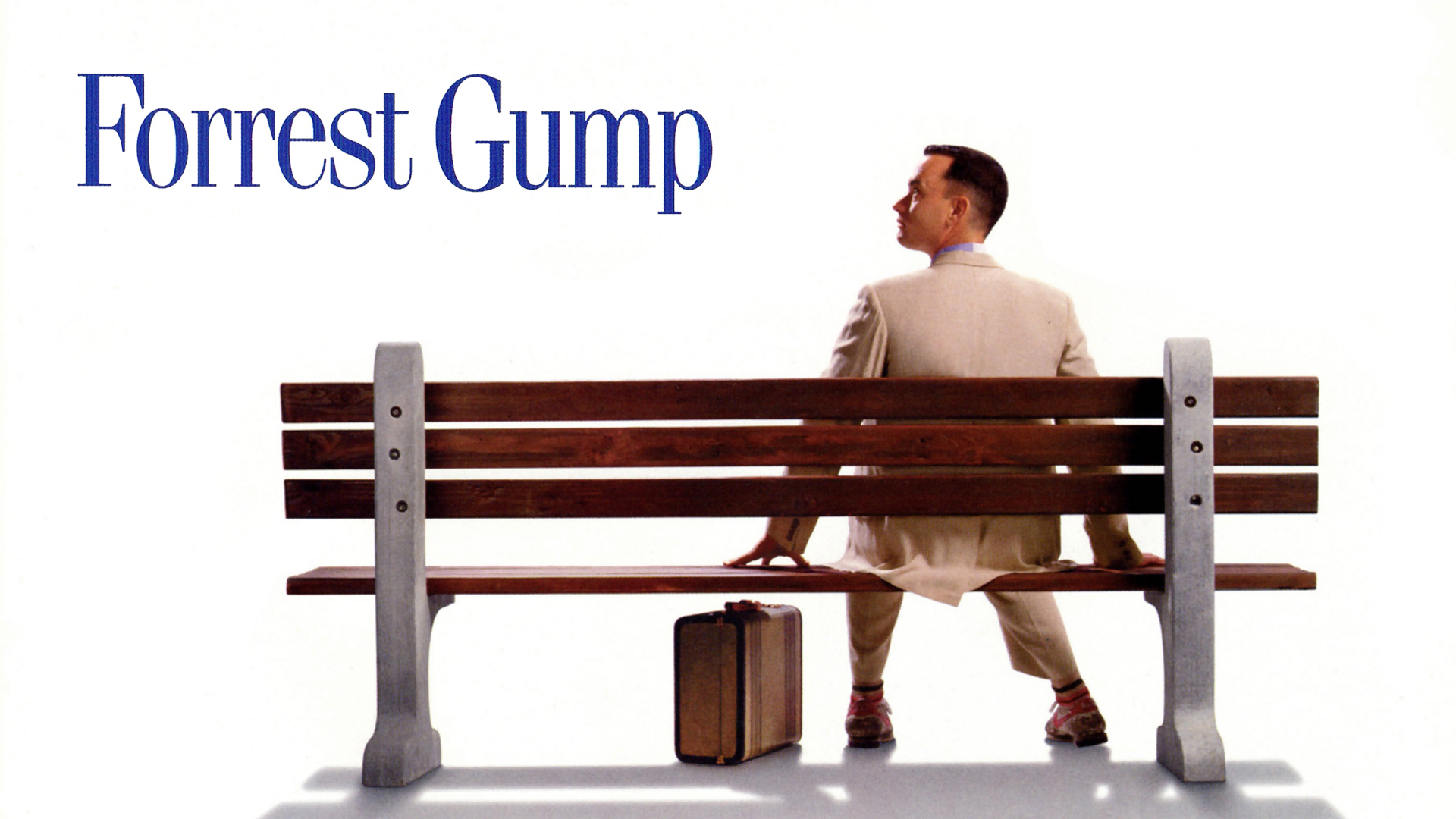
When I was a kid, I had the Forrest Gump soundtrack, despite never having watched the movie. I’m not sure how that came about, except maybe that I’d developed an interest in music through the decades and that soundtrack seemed like a suitable way to get a completely random assortment of songs. It was only on my full viewing of the film – now, for this blog – that I’ve seen how they were used in the film. Occasionally, songs play an actual noteworthy role in setting mood or atmosphere, but far too often, we just get a few seconds’ splat against the eardrum as if they just crammed a jukebox in the audio track to see if anything sticks. There’s a lot of random music in this movie.
Though I never knew the exact plot of Forrest Gump, I knew the basic gist of it: a developmentally disabled man stumbles his way through key historical moments in recent history. And since the most affecting event of Forrest’s generation was the Vietnam War, the conflict and its aftermath take up a significant proportion of the film. Since the tone of the movie is light, we’re not really left much time to think about the deaths that occur, or the long-lasting effects of alcoholism and homelessness among veterans, or the trauma of abuse and depression. So many shitty things happen in this movie, but we just have to shrug it off for the next zany thing Forrest comes up with!
I’m probably just a wet blanket. But I don’t know, I’m sure most people have seen this film, but I don’t know of anyone who raves about it. Nobody claims it as their favorite movie of all time, at least nobody I know. (Maybe I’m wrong – and if so, feel free to share your love and reasons for it.) But I’m not sure that it’s a story of deep emotional resonance. I guess what bothered me was that Forrest is not a character who makes things happen – he simply reacts to things in his simple way and is rewarded with incredibly good luck. All the while, he seems relatively unaffected by anything that comes his way – even, ultimately, his losses.
It is one of those movies that’s had a lasting impact on popular culture, for better or for worse – there’s a Bubba Gump restaurant in Times Square now, isn’t there? And who hasn’t quoted one of those famous lines of pseudo-wisdom? That’s what this blog project is about, I keep reminding myself – watching the movies that have some kind of social significance, even if it’s in the form of one-liners.
That said, the movie does use a few unusual techniques to make it something more than the average life story: the telling-a-story-on-a-bench framing device (though I wish it had a bit more of a significant payoff, and I thought it would end with a crowd gathering around to hear his story); the naïve narrator, through whose eyes we see things that are familiar with a fresher perspective. I’m just not sure what it all adds up to. We’re swept along like a feather on the wind, and drop somewhere for a while until the wind picks up again.
Theme: War
Which War? Vietnam War
First Time Watching? I’ve seen parts, but never in its entirety
Final Verdict: That’s all I have to say about that.

